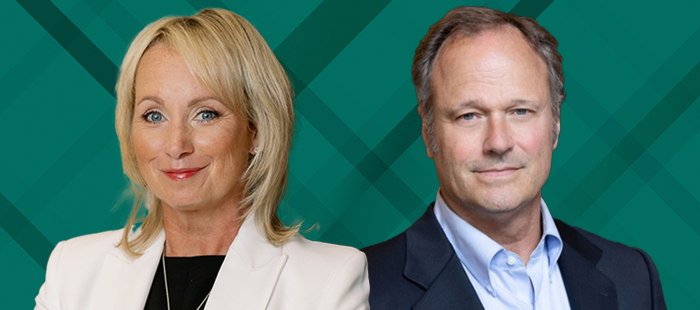For Greater Success, Try Failing
- Innovation thrives when organizations embrace change and continually adapt to stay relevant.
- Setting ambitious individual goals encourages creativity and drives progress, even when the risk of failure is high.
- Business schools can also promote a fail-forward mindset by designing their programs and grading structures to prioritize learning outcomes and course engagement, rather than traditional grades.
Transcript
Dreen Yang: [00:15] I believe that innovation can indeed become stale. Anything can be stale if it’s not changed. With that said, I think innovation can take many forms.
[00:25] For example, I work at Coca-Cola. What we have not changed is the formula of Coca-Cola. What we have innovated is many things, such as innovation around the package and different formats, right? You have PET bottles, cans. You also have innovation around promotions. We created the couponing process. We created the Santa Claus process. So all that was innovation.
[00:46] We can also innovate in terms of business models. Coca-Cola was first sold in a pharmacy as a post mix. Later on, it became a bottle. Later on, a fridge pack. Later on, you can see it in all kinds of different formats.
[01:01] In terms of the franchise model that has been invented, it really empowered 200 plus different bottling systems to really support the mothership, so to speak, to spread Coca-Cola everywhere. There are many, many ways to innovate differently, and you should never stick with the same format forever. Because the world changes, and we have to change with the times.
[01:24] So, the connection between innovation and failing. Let me try to use a Chinese proverb. Chinese proverb says "failure is the mother of success."
[01:35] And I love that because from a young age, I kind of really memorized that, and I was encouraged by that because I know that if I fail at something, I learned something.
[01:44] If you think about failure as failure, you abhor it and try to stay away. But if you think about failure as mother success, then you know that you need to fail a few times before you’re successful.
There are many, many ways to innovate differently, and you should never stick with the same format forever.
[01:54] In my current job, which is global GM for Future Flow, I really espouse this kind of what I call fail-forward thinking. That is, people need to stretch themselves and to think what is possible versus constantly sandbagging, and thinking it’s definitely for sure.
[02:09] One way is to set very aggressive OKRs or objective key results. Every quarter, everybody has three OKRs, and a good OKR is something that they can only attain 50 to 70 percent likelihood. So, the chance of failure is actually 30 to 50 percent from the get-go.
[02:27] Why do I do that? Because I want to get people to stretch, to think what’s possible.
[02:31] And at the end, we actually celebrate failures and say that was a successful failure. So if we wanted to go into 10 outlets and at the end went to nine, we celebrate that. Did we get to 10? We did not.
[02:42] But if we set a sandbag of two or three and overachieve it with five, that is not nearly as good as setting a 10 aggressive target and get denied.
People need to stretch themselves and to think what is possible.
[02:53] I really believe in failure as being the mother of success; you gotta be able to embrace failure in order to succeed faster. As business educators, how to espouse more of this, what I call the fail-forward mindset. And there’re many ways.
[03:06] For example, my first school, Rice University, had this pass/fail system. You can take two courses, pass/fail. Everything else is on a grade. So, for example, I took public speaking. Why? Because I’m terrible at it. But because of this pass/fail, I took it.
[03:25] I passed. I probably got a B, but I never knew, because once you’re pass/fail, you never know what your final grade is. I passed.
[03:32] So, as an example of embracing that, Wharton School, where I went for my MBA, had a grade non-disclosure system, so we cannot disclose our grades to prospective employers.
[03:43] That really encouraged us to take all kinds of courses for the betterment of our education.
One way business educators can encourage a fail-forward mindset is to encourage much more experimentation, even in their classes.
[03:48] For example, what I did at Wharton School, I just went down, took all the courses I found interesting, and had a good professor review. Only in the last semester did I figure out what I needed to do to create a major. I wanted to take the best courses, maximize my learning, versus caring about what grade I made. Because what was most important is learning, and I thought the school espoused that.
[04:10] Another way where business educators can encourage a fail-forward mindset is to encourage much more experimentation, even in their classes.
[04:18] Because when we set up something called experimentation, by design, experiments are designed so that we can fail sometimes and succeed at others. Calling it experiment really give people permission to fail.
[04:30] So we actually have much more design experiments that allow people to really present both failures and successes as part of the experimentation. That’s really a way to embrace more of this fail-forward mindset.
[04:44] I think, lastly, it just encourages people to take more entrepreneurial courses. I think that, in the nature of entrepreneurial courses coursework, you will naturally do a lot of experiments, and naturally, if you do it right, you will fail, and hopefully, you’ll succeed.
[04:58] By taking some of those entrepreneurial courses, you encourage your students to be much more fail-forward.






